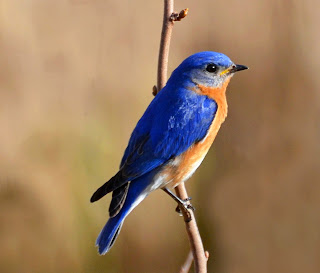Even One
It was dusk. Quandary peak was shadowed in the
gloaming against a fading violet sky as light followed the descent of a sun
already set.
I curled up on the
couch, my eyes closed in prayerful meditation. Through the door open to the
deck I heard the sleepy chirp of a single bird. I looked in his direction, but
could not locate him amongst the dark pine boughs.
I had been
thinking of the verses of Matthew 6 and the column I’d write this week and this
singular bird reminded me that God cares for us even when we are alone. Even
one solitary voice in the wilderness is noticed by God, and cared for.
Those lucky enough
to live here year-round know that beneath the bustling tourist destination is
the heart of a small town where we each find our niche, our community of
friends.
Despite these open
arms there will still be moments when we find ourselves alone or lonely. And
this is when we need to recall the small voice of the solitary bird singing before
nightfall. Just as I heard his call and made note of it, so too God hears our
solitary voice. But unlike my inability to locate the bird, God knows exactly
where we are and what we need.
“Therefore, I tell you, do not worry about your life, what
you will eat or drink; or about your body, what you will wear. Is not life more
than food, and the body more than clothes? Look at the birds of the
air; they do not sow or reap or store away in barns, and yet your heavenly
Father feeds them. Are you not much more valuable than they? Can any one of you by worrying add a
single hour to your life?” (Matthew 6:25-27)
As heartfelt as these words are, they can be a challenge to
embrace when we feel alone or abandoned. Yet that is exactly when we need most
to emulate the solitary bird singing in the night. But how are we meant to keep
singing when we are alone in the dark? How are we to keep trusting that all
will be well in an uncertain future?
Soren Kierkegaard says that in these moments we are to emulate the
bird’s unwavering courage, “that to travel is thus to let go of what is certain
in order to grasp what is uncertain, the obedient bird nonetheless immediately
sets forth on the journey; in simple fashion and with the help of unconditional
obedience, it understands only one thing, but understands it unconditionally:
that now is the moment, unconditionally.” (Kierkegaard, The Lily of the Field and the Bird of the Air)
What Kierkegaard
calls unconditional obedience, I call ‘trust’ and ‘surrender’, because if we
are to be obedient to God’s will for our lives, we must trust that God cares
for us and wants only the best for us. And if we trust God in this way, then we
will surrender our will to God’s will. Not only is this difficult, it goes
against our human nature to determine our fate.
The mental image
that pops into my mind at this thought is the surrender we must experience when
we float on our back, arms outstretched, in the ocean. If we fight or struggle,
we will instantly sink. But if we remain calm, slow our breathing, relax our
muscles, and allow the salty water to keep us buoyant above the water’s edge,
we will float. We will be held by no effort of our own. We will be safe.
To be clear,
Kierkegaard’s call for obedience, or my call for trust and surrender, are not
for passive inactivity. As Kierkegaard writes, “When the bird comes into
contact with the harshness of this life, when it is tried with difficulties and
opposition, when, every morning, day after day, it finds that its nest has been
disturbed: every day, the obedient bird begins its work all over again with the
same joy and meticulousness it displayed the first time.”
When we meet
difficulties, we are called to follow the bird’s example. To persevere, to
re-build our broken nest, to continue our job hunt, to endure our physical
therapy, to send another email to the loved one who has shut us out. We keep
moving forward, step by step, working to our best, but simultaneously trusting
and surrendering the outcome into God’s hands.
With this in mind,
I will be like the bird. I continue to look for a new home to rent in
Breckenridge. Please say a prayer for me, or let me know if you have a nest for
this bird.
++++++++++++++++++++++++++++
Suzanne Elizabeth Anderson is the author of “A Map of Heaven.”
She lives in Breckenridge. Join her at www.Facebook.com/suzanneelizabeths This week’s column is part two in
a series on Jesus’ parable of the Lily of the Field and the Bird of the Air.



Comments